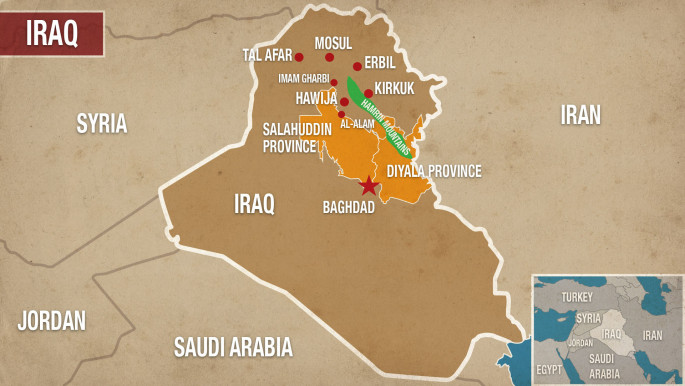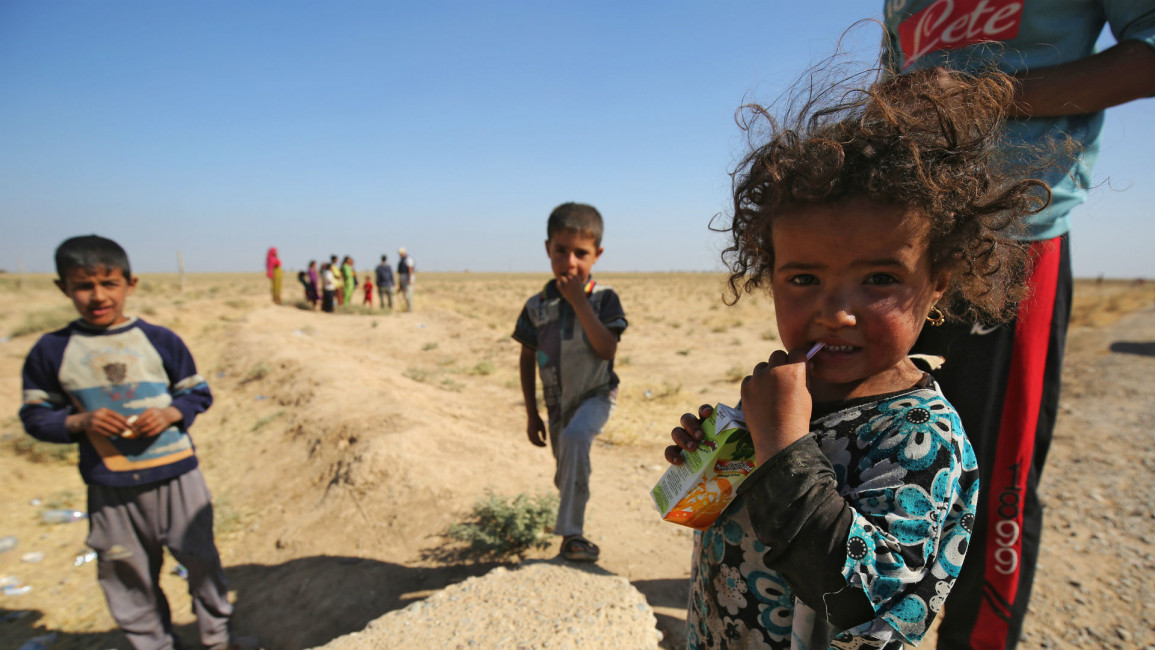Anti-IS Hawija offensive displaced '14,000 civilians'
The Hawija offensive was launched on September 21 by Iraq's army as part of its drive to dislodge the Islamic State group from the country.
Hawija was one of two remaining territories held by the IS group in Iraq.
Between the start of the offensive and October 5 an estimated 14,000 people arrived at the Daquq camp for displaced people, Médecins Sans Frontières (MSF) said on Thursday.
"Daquq camp is currently the only camp in Kirkuk governorate receiving people who fled the Hawija offensive," said Tatiana Kotova, MSF Kirkuk project coordinator.
"It hosts around 11,000 people who have fled Hawijah district since October 2016. The MSF team in the camp has been providing medical care since January 2017 through an outpatient department for general medical consultations."
Read more: Two dudes embed in Hawija
MSF teams have provided around 3,200 medical consultations for civilians fleeing Hawija, many who were injured in the dangerous journey out of the town.
Civilians in the Hawija district have lived under siege for almost three years and have been deprived of medical care as infrastructure and facilities were not functioning.
"Fleeing Hawija was so dangerous that people call it the road of death," a 37-year-old man who fled from the south of Hawija told MSF.
"We had to pass a narrow road between a mountain and a valley. Many people died on this road. Some of them fell into the valley. It took us between 15 and 16 hours to escape from the besieged town."
 |
|
MSF teams were unable to enter the district to the siege but positioned their activities as close as possible to the frontlines to provide healthcare for the war-wounded.
"By the time people decide to flee Hawijah, most are already incredibly vulnerable, and then you add to that the physical and mental drain of the journey," Kotova said.
"We receive patients in really critical conditions."
In the months preceding the battle for Hawija MSF provided supplies for the two main hospitals in Kirkuk and trained nurses and doctors from Iraq's Department of Health to cope with the war-wounded.
Click here to receive The Iraq Report each week in your inbox



